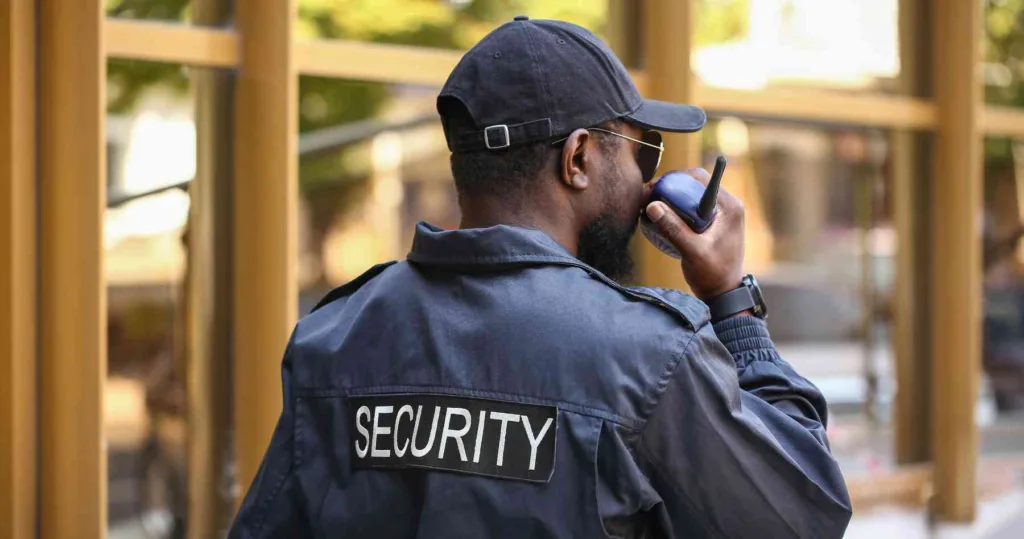Security guards play a crucial role in maintaining law and order, protecting property, and ensuring the safety of individuals in both public and private spaces. In South Africa, where crime rates are comparatively high, the private security industry is one of the largest in the world. To ensure the integrity and effectiveness of this vital industry, the South African government has established specific regulations and standards that govern security guards and security service providers. This article explores the key aspects of these regulations, including licensing, training, duties, rights, and accountability.
1. The Role of the Private Security Industry Regulatory Authority (PSIRA)
The Private Security Industry Regulatory Authority (PSIRA) is the main body responsible for regulating the private security industry in South Africa. Established under the Private Security Industry Regulation Act, 2001 (Act No. 56 of 2001), PSIRA oversees the registration, compliance, and conduct of all security service providers, including individual security guards and security companies. The psira verification status check plays a vital role in upholding professional standards for security personnel across the country.
PSIRA’s key responsibilities include:
- Registering all private security personnel and businesses.
- Monitoring compliance with ethical and operational standards.
- Enforcing disciplinary actions against violators.
- Promoting high standards of training and service delivery.
2. Licensing and Registration Requirements
Individual Security Guards
To legally work as a security guard in South Africa, individuals must be registered with PSIRA. The requirements include:
- Being at least 18 years old.
- No criminal record, especially for offenses related to violence, dishonesty, or substance abuse.
- Completion of accredited security training courses.
- Submitting fingerprints for a criminal background check.
- Payment of applicable registration fees.
Once registered, the individual receives a PSIRA certificate and registration number, which must be renewed annually.
Security Companies
Companies offering security services must also register with PSIRA and meet additional requirements such as:
- Proof of business registration.
- Employment of registered security officers only.
- Maintenance of adequate infrastructure (offices, vehicles, communication tools).
- Compliance with tax and labor laws.
- Regular reporting to PSIRA.
3. Training and Grades
Security guards in South Africa are graded according to the level of training they receive:
- Grade E: Entry-level training focusing on basic guarding and access control.
- Grade D: Training for guards handling access control and patrolling duties.
- Grade C: Intermediate level, involving site supervision and administrative tasks.
- Grade B: Supervisory training, often for area managers or team leaders.
- Grade A: Advanced level for senior security officers, including managerial and strategic duties.
Training must be obtained from PSIRA-accredited training providers, and proof of training is required for each grade level.
4. Legal Powers and Limitations
Security guards are not police officers, and their powers are limited. However, they do have certain legal rights under South African law, including:
- Performing citizen’s arrests under specific circumstances (e.g., witnessing a crime).
- Detaining suspects temporarily until police arrive.
- Using reasonable force in self-defense or to protect property.
- Carrying firearms only if they are licensed and trained under the Firearms Control Act.
However, security guards cannot conduct searches without consent, use excessive force, or violate human rights. All actions must comply with the Bill of Rights and the Constitution of South Africa.
5. Employment Conditions and Worker Rights
Security guards in South Africa are protected under labor laws, including:
- The Basic Conditions of Employment Act (BCEA), which governs working hours, overtime pay, leave, and rest periods.
- Minimum wage regulations set by the Department of Employment and Labour, updated periodically.
- Rights to unionize and protection against unfair dismissal.
Employers are required to provide:
- Protective uniforms and necessary equipment.
- Contracts of employment outlining duties and conditions.
- Compliance with health and safety standards.
Security guards in South Africa serve as a frontline defense against crime, and their role is deeply integrated into the nation’s overall safety framework. Understanding the role of psira training centres is key to grasping how South Africa regulates and professionalizes the private security industry. While the regulatory environment under PSIRA aims to ensure professional standards and accountability, ongoing reforms and active enforcement are essential to uphold the rights of security personnel and the safety of the public. Understanding these regulations not only empowers guards and employers but also promotes a more secure and just society.
